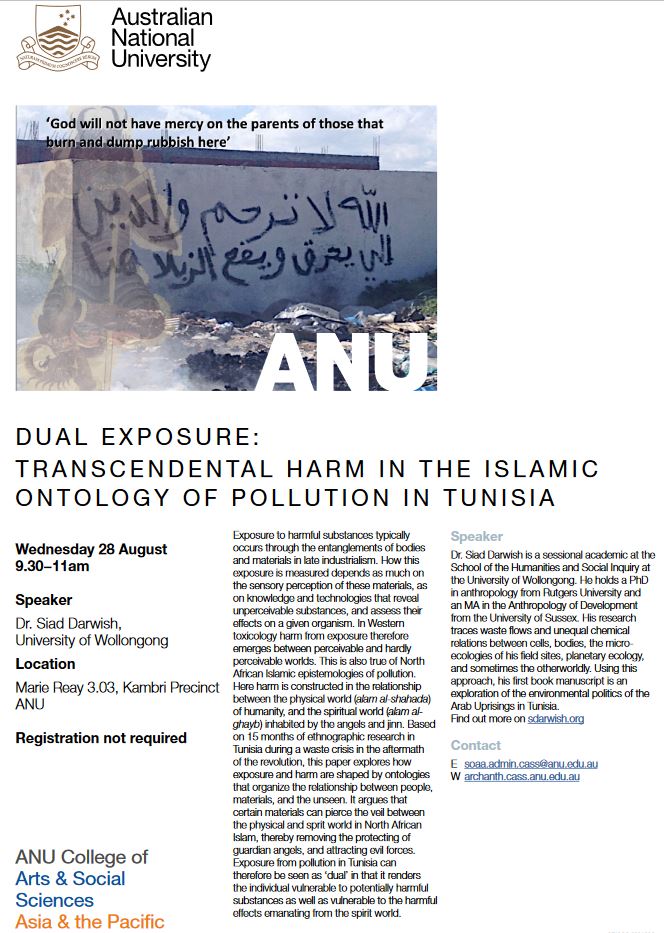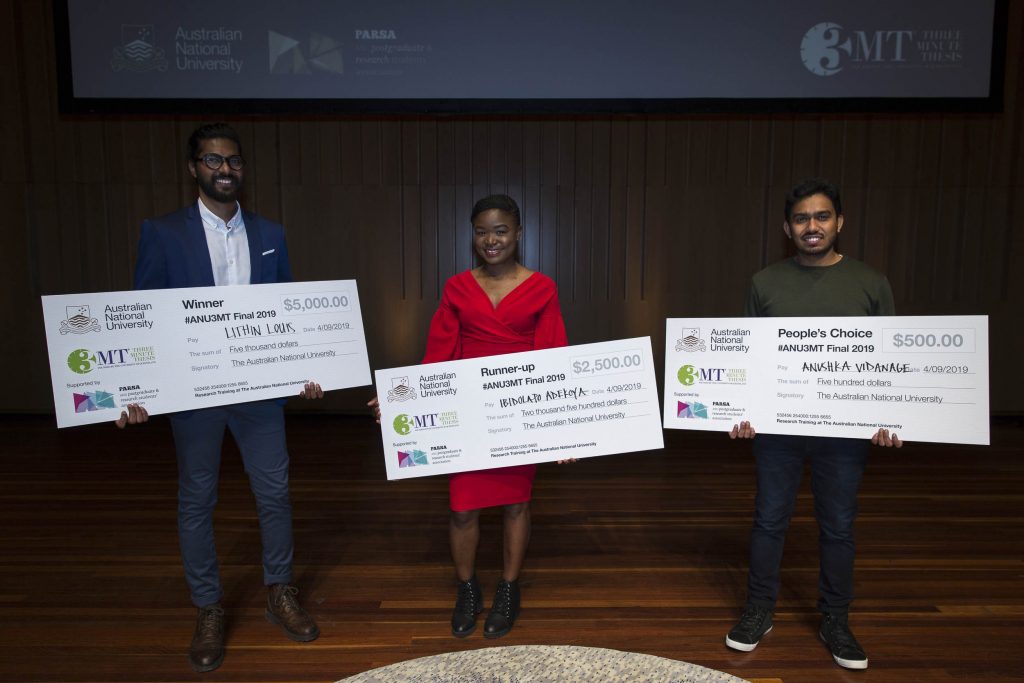Categories
-
ANU Africa Network
Posted on
by
This website was established in 2013 by David Lucas, and renovated and relaunched in 2020 as part of a project to increase awareness of Africa and African studies in the ANU and the ACT, funded by the Australian Government’s Department of Foreign Affairs and Trade.
Another outcome of that project was a major research report, published in August 2021, African Studies at the Australian National University and in the Australian Capital Territory, analyzing the past, present and future of the study of Africa at the Australian National University and the wider Australian University sector.

The major innovation on this updated website is the creation of the ACT Africa Expert Directory which lists experts on Africa from institutions around the ACT, primarily the ANU. We will continue to curate this list, offering a key resource for media, government and non-government organizations seeking expert facts and opinions on Africa. Individuals can request to be added to the list by contacting the website managers.
Another notable addition is the expanded directory of PhD theses on Africa produced in the territory’s universities, a solid measure of the vitality of the study of Africa in the city of Canberra.
Reviewing these directories, it is revealing to note that the vast majority of research on Africa is produced by disciplinary experts (environmental scientists, economists, demographers, etc.) rather than area studies experts. This means that the study of Africa is woven into the fabric of the research culture of the ANU and the ACT’s other universities in ways that are not necessarily apparent.
-
Congratulations to Ibidolapo Adekoya!
Posted on
by
Congratulations to Ibidolapo Adekoya, as well as Lithin Louis and Anushka Vidanage,
prize winners in the ANU’s 2019 Three Minute Thesis event!
-
Maxine Beneba Clarke in Conversation with Zoya Patel
Posted on
by
Award winning author, Maxine Beneba Clarke (editor of Growing Up African in Australia), will be in conversation with feminist author and editor, Zoya Patel, about her leadership journey as an Australian born black writer of Afro-Caribbean descent, creating space for other African diaspora voices, and empowering those who’ve been historically sidelined in Australian literature to tell their stories.
 Maxine Beneba Clarke is the ABIA and Indie award-winning author of the memoir The Hate Race, the short fiction collection Foreign Soil, the poetry collection Carrying The World, and several critically acclaimed children’s books, including the Boston Globe / Horn Prize award winning The Patchwork Bike, and the recently released Fashionista. She is the editor of Growing Up African in Australia, and Best Australian Stories 2017. Maxine is The Saturday Paper’s Poet Laureate.
Maxine Beneba Clarke is the ABIA and Indie award-winning author of the memoir The Hate Race, the short fiction collection Foreign Soil, the poetry collection Carrying The World, and several critically acclaimed children’s books, including the Boston Globe / Horn Prize award winning The Patchwork Bike, and the recently released Fashionista. She is the editor of Growing Up African in Australia, and Best Australian Stories 2017. Maxine is The Saturday Paper’s Poet Laureate.Zoya Patel is the author of No Country Woman, a memoir of race, religion and feminism, published by Hachette Australia.
She Leads In-Conversation events aim to provide the community with the opportunity to hear from women leaders from different backgrounds and industries, in a conversational format, followed by a live Q&A session, book signing and networking. Men are actively welcomed to attend.
The In-Conversation with Maxine Beneba Clarke will be at the Ann Harding Conference Centre, University of Canberra on Friday 20 September 2019 from 6:15–8:15 pm.
-
Seminar: “Dual Exposure: Transcendental Harm in the Islamic Ontology of Pollution in Tunisia”
Posted on
by
Wed 28 Aug 2019, 9.30–11amMarie Reay Teaching Centre, Kambri/Room 3.03, Building 155 Exposure to harmful substances typically occurs through the entanglements of bodies and materials in late industrialism. How this exposure is measured depends as much on the sensory perception of these materials, as on knowledge and technologies that reveal unperceivable substances, and assess their effects on a given organism. In Western toxicology harm from exposure therefore emerges between perceivable and hardly perceivable worlds. This is also true of North African Islamic epistemologies of pollution. Here harm is constructed in the relationship between the physical world (alam al-shahada) of humanity, and the spiritual world (alam al-ghayb) inhabited by the angels and jinn. Based on 15 months of ethnographic research in Tunisia during a waste crisis in the aftermath of the revolution, this paper explores how exposure and harm are shaped by ontologies that organize the relationship between people, materials, and the unseen. It argues that certain materials can pierce the veil between the physical and sprit world in North African Islam, thereby removing the protecting of guardian angels, and attracting evil forces. Exposure from pollution in Tunisia can therefore be seen as ‘dual’ in that it renders the individual vulnerable to potentially harmful substances as well as vulnerable to the harmful effects emanating from the spirit world.
Exposure to harmful substances typically occurs through the entanglements of bodies and materials in late industrialism. How this exposure is measured depends as much on the sensory perception of these materials, as on knowledge and technologies that reveal unperceivable substances, and assess their effects on a given organism. In Western toxicology harm from exposure therefore emerges between perceivable and hardly perceivable worlds. This is also true of North African Islamic epistemologies of pollution. Here harm is constructed in the relationship between the physical world (alam al-shahada) of humanity, and the spiritual world (alam al-ghayb) inhabited by the angels and jinn. Based on 15 months of ethnographic research in Tunisia during a waste crisis in the aftermath of the revolution, this paper explores how exposure and harm are shaped by ontologies that organize the relationship between people, materials, and the unseen. It argues that certain materials can pierce the veil between the physical and sprit world in North African Islam, thereby removing the protecting of guardian angels, and attracting evil forces. Exposure from pollution in Tunisia can therefore be seen as ‘dual’ in that it renders the individual vulnerable to potentially harmful substances as well as vulnerable to the harmful effects emanating from the spirit world.Dr. Siad Darwish is a sessional academic at the School of the Humanities and Social Inquiry at the University of Wollongong. He holds a PhD in anthropology from Rutgers University and an MA in the Anthropology of Development from the University of Sussex. His research traces waste flows and unequal chemical relations between cells, bodies, the micro-ecologies of his field sites, planetary ecology, and sometimes the otherworldly. Using this approach, his first book manuscript is an exploration of the environmental politics of the Arab Uprisings in Tunisia. Find out more on sdarwish.org.

